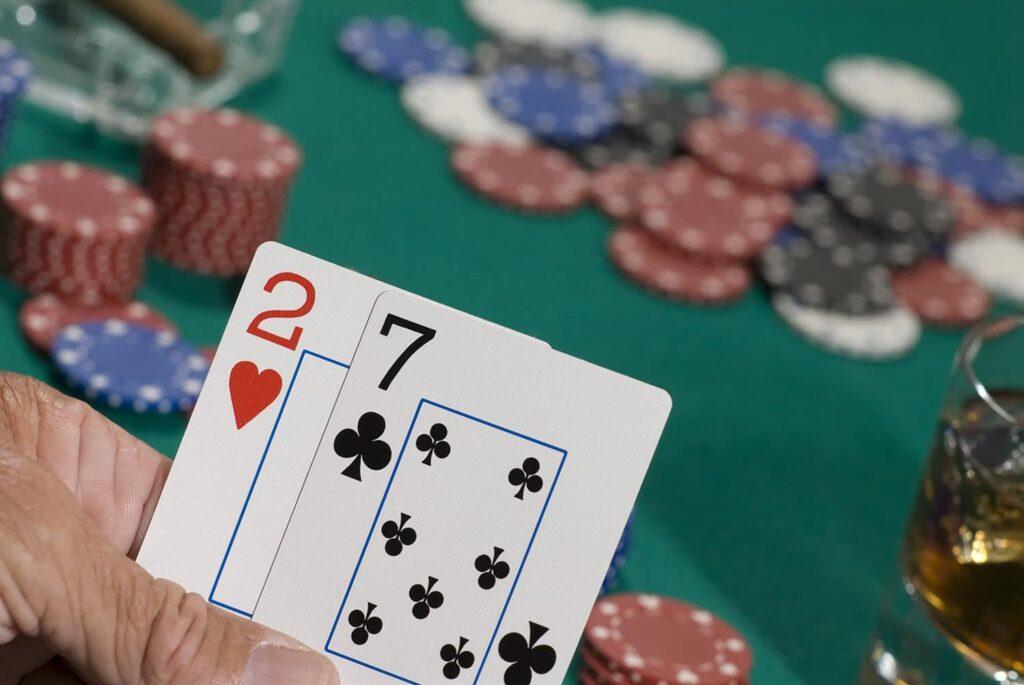Gambling has existed throughout human history, taking different forms and manifestations in different cultures and eras. However, the casino concept as we know it today has its own unique history of development, which is closely intertwined with social, economic and cultural changes in world history. In this article we will look at the key moments and milestones that influenced the formation and development of casinos, from ancient times to the present day.

Why did people start gambling?
1. One of the main reasons why people started gambling is the desire for excitement and adrenaline that they experience while gambling. The risk and uncertainty of the outcome of the game evokes strong emotions and can even be addictive for some people.
2. Gambling is often a social activity where people can get together, socialize and enjoy each other’s company. In a historical context, gambling has often been used as a way to strengthen social bonds and provide entertainment.
3. The desire to win money or valuables is also a powerful incentive to gamble. The opportunity to get a quick and significant win with a small initial investment has always attracted people.
4. In some cultures and religions, gambling had or has a symbolic meaning, for example, it was used to predict the future or as part of religious rituals.
5. Curiosity and the desire to experience new things are also the reasons why people start gambling. This can be part of exploring different aspects of life and seeking new experiences.
6. For some people, gambling is a way to cope with boredom or escape from everyday problems and stress.
Ancient civilizations and gambling
Archaeological finds show that gambling existed in ancient Egypt, China, India and Rome. In China, for example, games similar to the lottery existed already in 2300 BC.
The Middle Ages and the earliest records of casinos
In the Middle Ages, gambling was a popular pastime for people of all ages. The earliest businesses resembling modern casinos were established in Italy in the fourteenth century. Nobles gathered in these so-called “ridotto” places for sports and recreation.
The origins of the casino in Venice
Venice at the beginning of the 17th century was at the peak of its prosperity and cultural development. This is where the concept of the modern casino originated. In 1638, the Venetian government founded the first officially legalized gambling establishment in the world, the Venetian Ridotto. The move was taken in part to control gambling during Carnival, which attracted many foreign visitors to the city.
Ridotto was housed in a building near the Church of San Moise and was open to the public. However, despite its public accessibility, Ridotto was played mainly by representatives of high society, since the stakes were high and the dress code was strict. The establishment offered various gambling games, including games of cards and spillikins.
Spread of casinos in Europe
Since the opening of the Venetian Ridotto in the mid-17th century, the casino concept has gradually spread throughout Europe. This was a time when gambling was considered a pastime of the aristocracy, and casinos became a symbol of luxury and elegance. In the 18th century, with the development of spa culture, many European spa towns, such as Baden-Baden in Germany, Vichy in France and Spa in Belgium, opened their casinos. These establishments were not only places to play, but also social centers where balls, concerts and other entertainment events were held.
Monaco stands apart in the history of the spread of casinos in Europe. In 1856, Prince Charles III of Monaco, seeking to improve the financial situation of his principality, founded a company that later opened the Monte Carlo casino. This casino quickly became a symbol of luxury and elegance, attracting the rich and famous from all over the world. The casino building, designed by the famous architect Charles Garnier, is an architectural masterpiece and still serves as one of Monaco’s main tourist attractions.
Casinos in America
In the United States, the development of casinos began in the 19th century. They were originally distributed throughout Western cities during the Gold Rush. Later in the 20th century, Las Vegas emerged as the gambling capital of the world.
The period of modern casinos
Globalization and the fast advancement of technology have greatly changed the gaming sector, ushering in the modern casino era. A new chapter in the history of casinos was written with the introduction of the Internet in the 1990s and the opening of the first online casinos. Due to the ability to wager from home, a considerably larger number of people could now access casinos. The business has also benefited from new elements brought about by modern technology, including virtual reality integration and live dealer games, which give players a more realistic and engaging experience.gameplay encounter.
Modern casinos are not limited to slot machines and tables for card games. They have turned into multifunctional entertainment complexes, including restaurants, bars, hotels, conference halls and concert venues. This allowed casinos to become not only places for gambling, but also centers of recreation and entertainment for a wide range of visitors.
Social and monetary parts of club
Gambling clubs have a huge financial and social effect. From one viewpoint, they make occupations and create huge expense incomes. Then again, issues connected with betting enslavement and the social outcomes of betting keep on being the topic of conversation and examination.
Regulation and control of casinos
Governments in many countries actively regulate casinos by establishing strict regulations and laws. This aims to ensure fair and transparent gambling and protect players from fraud and abuse.

Conclusion
Casinos have experienced a long and amazing historical development. From simple games in ancient civilizations to complex technological platforms of modern times, they not only provide entertainment and gambling opportunities, but also reflect cultural, technological and social changes in society. In the future, we can expect even more innovation and change in this exciting industry.
